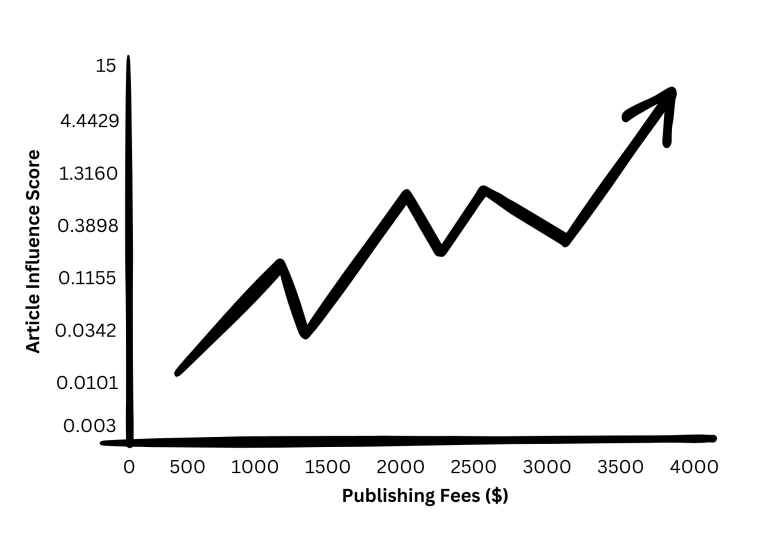Academic Publishing: Addressing the Issue of High Open Access Fees
Academic publishing is said to be more profitable than tech companies like Apple, Google, and Amazon. This industry often seems unfair: academics share their work with private companies for free, but then their universities have to pay high fees to read these publications. On top of that, academics usually edit and review these journals without getting paid for it.
Figure: Article Influence Score and Publishing Fees. More prestigious journals tend to charge higher publication fees.

Figure: Article Influence Score and Publishing Fees. More prestigious journals tend to charge higher publication fees.
In Stephen Buranyi’s insightful history of academic publishing, Robert Maxwell stands out as a key figure who reshaped the industry for profit. After World War II, the number of universities and academic journals grew rapidly. Maxwell and others saw this as a chance to turn what had been mostly nonprofit into a money-making business. Today, there’s a growing awareness that this approach is expensive and slows down scientific progress. While open-access journals are becoming more common, many still charge high fees. However, there’s hope in new journals like the International Journal of Music, Health and Wellbeing (IJMHW), Psychreg Journal of Psychology (PJP), and Journals at ConductScience Publishing! These journals are pioneering a different path by offering free publishing for authors and free access for readers—a big change from the norm.
Addressing high open access fees in academic publishing is crucial. These costs can make it hard for researchers and institutions with limited funds to access important research. That’s why we need to find ways to support open access without imposing high fees, and that’s exactly what ConductScience Publishing aims to achieve.
Why Start a Peer-Reviewed Academic Journal?
As already mentioned, many established academic journals face criticism for being expensive to publish in, hard to access, and slow to publish new research. This can slow down progress and limit new ideas in various fields.
However, starting a new academic journal has significant benefits. One major advantage is creating a platform that fills gaps in how research is shared. New journals can focus on making research open to everyone, which encourages collaboration and sharing knowledge worldwide.
Starting a journal also lets editors choose articles that explore new ideas and different fields of study. This flexibility can attract diverse authors and support innovative research that might not fit into existing journals.
ConductScience Publishing Paves The Way For Low Open Access Fees
ConductScience Publishing is committed to breaking barriers in academic publishing. By offering the lowest open access fees in the industry, we make it easier for researchers to share their findings with the world.
Our mission is to ensure that researchers from all backgrounds can affordably publish their work and contribute to global research efforts. Explore our user-friendly submission system and begin publishing your work today!





